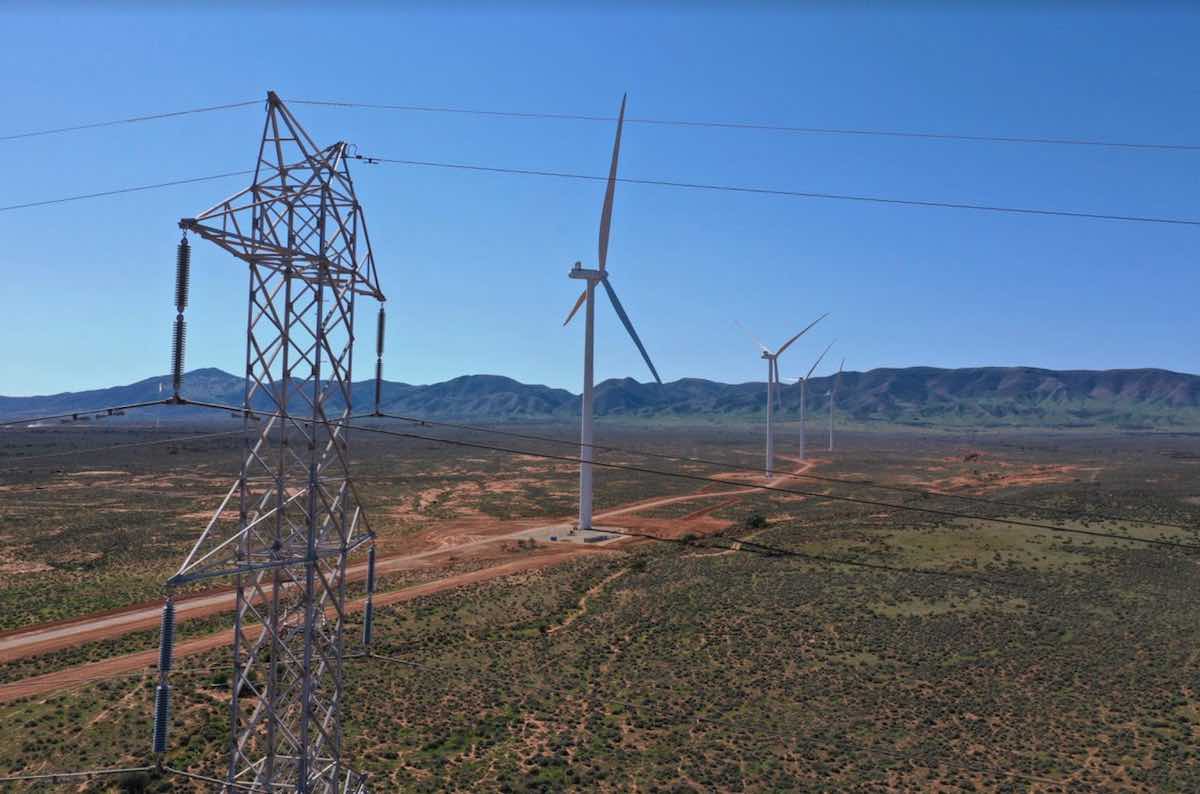The South Australia Labor government is to enshrine its world-leading 100 per cent net renewable energy target into law, as mining giant BHP looks to double its refining and smelting capacity in the state.
The state is already a world leader with more than 70 per cent of its local demand met by wind and solar, and it recently accelerated its target of 100 per cent net renewables from 2030 to 2027, when a new transmission link to NSW will be completed.
Other states and countries have higher renewable shares but they are supported by hydro, or geothermal. South Australia will be the first to reach 100 per cent renewables delivered only by wind and solar, with storage and a diminishing amount of gas capacity as back up and reserve.
The significant reductions in South Australia’s fossil fuel use on the grid – and the emission reductions that have achieved with it – have inspired it to upgrade its 2030 climate targets to a 60 per cent cut below 2005 levels, and lock in its 2050 net zero target into law.
“While these are ambitious goals, SA has reduced emissions substantially already, with a more than 50 per cent reduction since 2005 in the last reporting period,” deputy premier and climate minister Susan Close said in a statement.
“This is largely to the credit of SA’s renewable sector, and the bill includes the updated target of 100 per cent net renewable electricity generation target by 2027.”
Close says that the legislation will send a clear signal to the community, investors and business about the Government’s commitment to a net zero emissions future.
“When the Act commenced in 2007, it was the first of its kind in Australia and helped our state to become the global leader in renewable energy generation and climate mitigation.”
Critics of renewable energy – and variable power sources such as wind and solar in particular – say the technology cannot support a modern economy. But the evidence in South Australia proves otherwise.
The state’s transmission company, ElectraNet, has said it is fielding enquiries from businesses looking to add around 2,000 MW of load to the state’s grid – about double its average load – and were attracted to the state’s low carbon grid, and the falling wholesale power prices, as well as its reliability.
The state government released data on Friday which showed that business investment in the latest quarter, was $2.5 billion, more than 15 per cent higher than at the time of the 2022 State Election, and showed growth that was 4 percentage points higher than the national average.
And state energy minister Tom Koutsantonis has also flagged the decision by BHP to potentially double the size of the already huge Olympic Dam copper mine, and its refining and smelting operations in the state.
Koutsantonis says a final investment decision on those plans will not be made for another three years. “But we do know that this proposed development comes at a time when our state is ideally positioned to capitalise on the massive opportunity emerging in the global effort to decarbonise.”
“Our state is home to more than two-thirds of Australia’s total copper resources, and its emergence as a Tier One copper province could ensure we have a significant role in meeting the predicted surge in international demand for copper required by the global energy transition.”
BHP has already taken major steps to ensure that its Olympic Dam are operations are powered by renewables.
It has an off take agreement with Spanish energy giant Iberdrola, and it has also signed a “baseload” renewables contract with Neoen, for a continuous supply of 70 MW of green energy from its 412 MW Goyder South wind project and the 237 MW, 475 MWh Blyth battery, which are both near completion.
BHP made an underlying profit of nearly $1 billion from its South Australia copper operations in the last financial year, following the purchase of the Oz Minerals assets.
It says an initial upgrade to a two-stage smelter, which would enable capacity growth to more than 500,000 tones, would enable it to unlock approximately $2.2 billion of total synergies from its Oz Minerals acquisition.
It is also looking at further expansion of BHP’s smelting and refining capacity, to align that capacity with potential growth at its Oak Dam and Olympic Dam assets.



